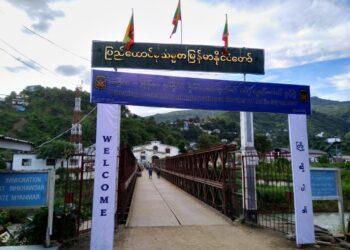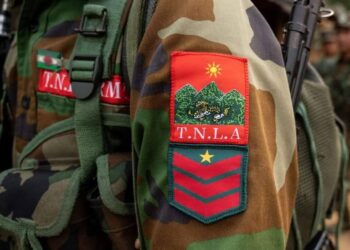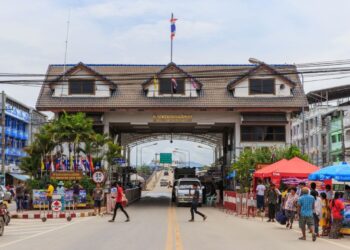A major development unfolds in the ongoing conflict in Myanmar as the Arakan Army (AA) succeeds in capturing the strategically important city of Palattwa, situated on the border of Chin and Rakhine states. Following a series of strategic maneuvers and assaults on military strongholds, the AA now asserts full control over the city, marking a significant territorial gain in the region.
Reports indicate that the capture of Palattwa was preceded by intense fighting and the seizure of vital military assets, including armored vehicles and Howitzers. With the city now declared free from the presence of military council members, the AA solidifies its foothold in the northern part of the country.
Palattwa holds immense strategic importance due to its location as a key hub for border trade, particularly with its proximity to the Khleton River project in India. The city’s capture not only grants the AA control over vital trade routes but also bolsters its position as a formidable force in the region.
Furthermore, the acquisition of Palattwa represents one of the AA’s earliest liberation zones in the northern part of Myanmar, underscoring its continued resistance against towns in the region. As the conflict rages on, the AA’s territorial gains and strategic advancements reshape the dynamics of the conflict, posing a significant challenge to the military council’s authority.
As the AA consolidates its control over Palattwa, the implications for the wider conflict are profound. The city’s capture not only enhances the AA’s military capabilities but also underscores its determination to challenge the status quo and assert its vision for the region.
Amidst escalating violence and territorial disputes, the fate of Palattwa serves as a poignant reminder of the human toll of war and the urgent need for a negotiated settlement to end the bloodshed. As the conflict enters a critical phase, the international community’s attention turns to Myanmar, grappling with the complexities of a nation torn apart by strife and division.






